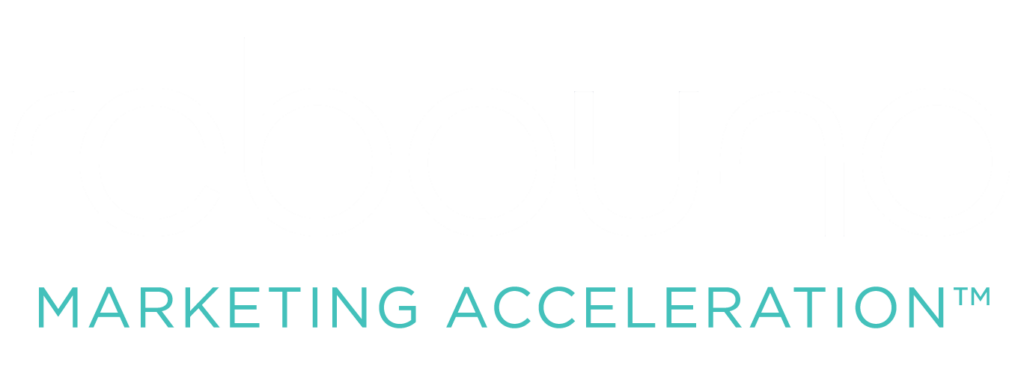By Clare Parisi
For life sciences companies looking to make their mark and connect with both current and existing customers, hosting events can be a powerful tool for generating leads. From product demonstration to thought leadership programs, events that resonate with your target customers can enhance traditional marketing activities, elevate your reputation and brand, and ultimately deliver qualified leads to help drive growth.
Planning an event, however, requires careful consideration and preparation to ensure that it runs smoothly and delivers the desired results. At Rebound, we’ve planned and managed dozens of successful events for life sciences companies to help them connect with customers and generate leads. Based on our learnings, we recommend considering — and answering — the following five questions before hosting an event to make sure you get the most return on your investment.
1. Who is the target audience?
A successful event is well-received by attendees, grabs their interest, and encourages them to follow up with your sales team. But who are these people and where do they come from? Do you know what their challenges and opportunities are? Answering these questions is critical, as doing so will help guide downstream decisions such as event logistics and format, content, and the types of products, services, or solutions presented.
Work with your sales team to identify potential high-value targets and their vision of the ideal attendee. From there you can customize your outreach and structure the event so it resonates with your target customers effectively.
2. What does success look like and how will you measure it?
As part of the overall event plan and strategy, you should identify key performance indicators (KPIs) for the event, such as the number of attendees, the number of leads generated, and the conversion rate of leads to customers. It’s important to have well-defined success metrics so that you, your team, and all associated vendors are working toward the same goals and have a shared understanding of success.
When the event is over, you can compare your event’s performance against the KPIs to get a sense of how well it did to generate leads and deliver a positive ROI. Defining success upfront — then measuring it once the event is over — will also provide feedback and suggestions for improvement that can be used when planning future events.
3. What’s the format and what are the main takeaways?
Unlike an industry event or tradeshow, hosting your own event to generate leads gives you a lot of flexibility to educate potential customers about your products or services. To boost your chances of a successful event, identify what messages you want to promote (i.e., product/solution specifics, thought leadership, etc.), then work with your subject matter experts on the best approach for delivering those messages.
Decide early whether your event will be a conference, seminar, or some other format that best enables you to tailor the event to your target audience. Perhaps you want to walk through all the benefits of a new product or solution, or maybe you have a customer testimonial that could be part of the programming. In any case, the format should be chosen to best match the message that aligns with your overall objectives.
4. What collateral will you share before and at the event?
As part of the event’s promotion, identify existing content that can be shared in advance with leads, such as whitepapers, case studies, or client testimonials. Providing differentiated content will help establish your voice as an expert and may encourage leads to attend your event to learn more about what they read. A solid white paper or case study that supports the event’s overall messaging could even be the basis for event content, providing a direct link between ongoing company messaging and the event itself.
Additional collateral at the event also can help expand on ideas or information presented or contain specifics on related products or services. As with all marketing collateral, make sure these pieces have a clear call-to-action so interested leads can get in touch.
5. How will you follow up with leads effectively?
Lastly, to maximize the return on your event budget, you’ll want to establish a process to follow up with leads from the event to convert these new connections into customers. Work with your sales team well before the event to establish a clear process for passing and following up on leads, ideally within 24-48 hours of the event.
Automating the lead capture process through a proper customer relationship management (CRM) system or lead capture software can help you collect and manage contact information from attendees efficiently. This helps to ensure that leads are captured, tracked, and nurtured effectively — improving the chances of converting them into customers.
Hosting events to showcase your products, solutions or ideas can be an effective way to generate and capture leads. With some initial planning that identifies the target audience, defines success metrics, and includes a format and collateral best suited for the messaging, you can increase the chances of capturing qualified leads from your event successfully. At Rebound, we have deep experience at every step of the event planning process — from strategy to execution — and we can help you craft an engaging event that will generate leads and help to drive growth.
Ready to elevate your event strategy and generate more leads? Schedule a meeting with our event experts today! Let Rebound help you plan impactful events that drive real results.

